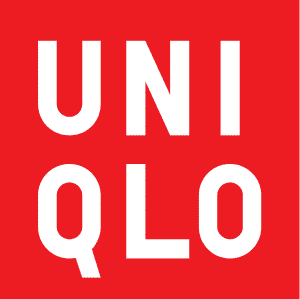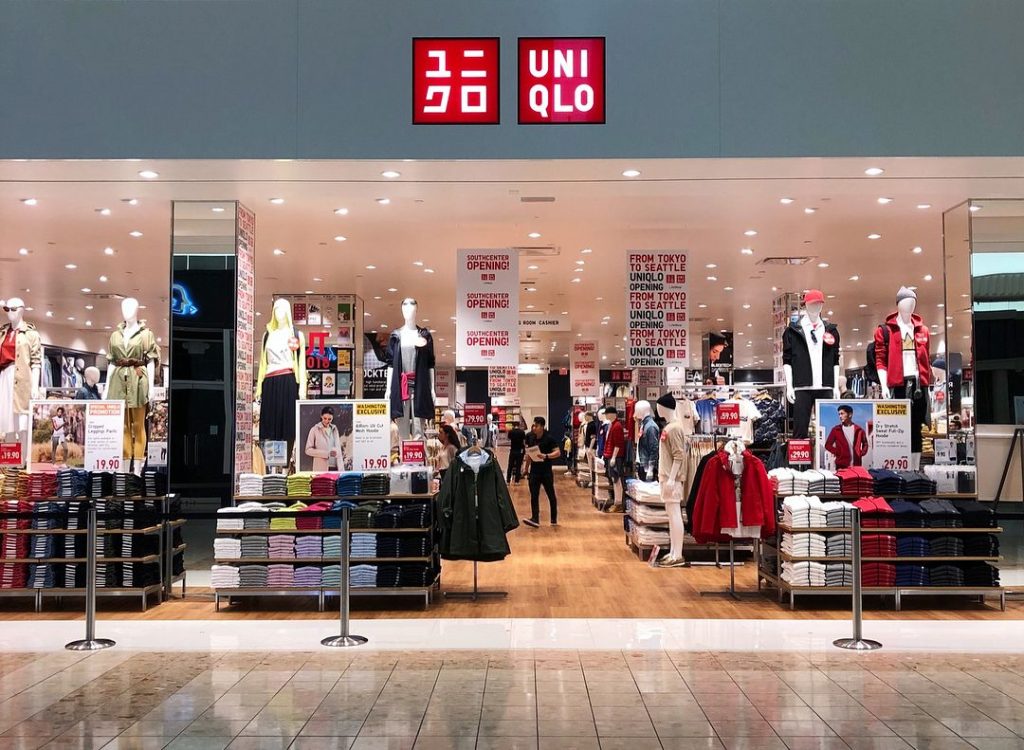Contents
Summary
Part of the Fast Retailing Co., Ltd. – a leading Japanese retail holding company with global headquarters in Tokyo – Uniqlo is a clothing apparel company founded in Yamaguchi, Japan in 1949 as a textile manufacturer. Today it’s a global fashion brand with over a thousand stores around the world. The brand’s focus on fine textiles, stringent quality and timeless styles, at accessible prices, is intact since.
History
In 1972 Tadashi Yanai inherited his father’s chain of twenty-two men’s tailoring stores named Ogori Shoji in Ube Yamaguchi. Shortly after becoming company president in 1984 he opened a new store in Hiroshima named Unique Clothing Warehouse, which was later shortened to Uniqlo.
The first Uniqlo store opened its doors in June 1984. Inspired by his travels to Europe and the US where he discovered large casual apparel chains like Benetton and Gap.. Tadashi Yanai saw immense potential for Japan’s casual wear marketand set goals to evolve the family’s business strategy from suiting to casual clothing. He also discovered that several International fashion chains were vertically integrated, taking control of the entire business process from design to production to retail. Steeped in inspiration… he proved the success of the manufacturer-retailer model by controlling the entire process from product planning and production to distribution and marketing.
The Japanese fashion brand enjoyed -and continues to enjoy- tremendous growth by providing high quality, functional and simple apparel at affordable prices for men, women and kids. By April 1994 there were over hundred Uniqlo stores throughout Japan. The brand engaged a retail brand consultancy to guide it through the realisation of this strategy including consulting on merchandise, visual merchandising and display, store design and a new logo designed by Richard Seireeni and Sy Chen from The Brand Architect Group’s Los Angeles office.
Pretty soon people began comparing Uniqlo with GAP. In November 1998 Uniqlo opened in Tokyo’s trendy Harajuku district and outlets soon spread to major cities throughout Japan. In 2001 sales turnover and gross profit reached a new peak with over five hundred retail stores in Japan. When Uniqlo decided to expand overseas, it separated Uniqlo from the parent company and established Fast Retailing (Jiangsu) Apparel Co., Ltd. in China. In 2002 their first Chinese Uniqlo outlet opened in Shanghai along with four overseas outlets in London. 2005 witnessed more overseas expansion with stores opening in the United States, Hong Kong and South Korea.
By 2006 sales were reported at $4 billion and the following year the company set a global sales goal of $10 billion and a ranking among the top five global retailers, joining what at the time was Gap, H&M, Inditex and Limited Brands. Further- in September 2009 Fast Retailing announced that the company would target annual group sales of 5 trillion yen and pre-tax profit from operations of 1 trillion yen by 2020. This meant that the company was aiming to become the world’s biggest specialty retailer of private label apparel with a continuous growth rate of 20 per cent per year. Impressive.
Uniqlo established collaborations with some well-known designers like Jil Sander in 2009- Shiatzy Chen in 2010 and Alexander Wang in 2018 to create a line of Heat-tech layer-able basics including tank tops, leggings, underwear and bodysuits. In 2022 Marni collaborated with Uniqlo. “Risso found the brand’s minimal approach and eclectic take on essentials a clever counterpoint to his art-focused approach at Marni. ‘I was blown away myself to realise how much precision and how much almost mathematical recipes are behind the most simple piece’ he says. ‘It was interesting in the way we could apply our sense of naivete or the hand—our immediate feeling.’ One strategy was to hand the Marni team hand-paint each pattern; those appear on long dresses, rain-proof anoraks, and stripey trousers.”
The collaborations provide a frisson of high fashion.. a suggestion that the leading lights of couture appreciate its cheap socks and T-shirts too. What’s more the brand philosophy- “Made for All” -positions its apparel and accessories to transcend age, gender and ethnicity. The high-quality apparel is simple, essential and universal enabling the wearers to style it differently and showcase their individualistic style. The design driven clothing brand offers unique functional performance owing to in-house fabric and design innovation. And- the company distinguishes itself from its competitors with unique products like HeatTech, LifeWear and AIRism.
Today Uniqlo is a wholly-owned subsidiary of Fast Retailing Company Limited and is acclaimed for its high-quality private-label life-wear at low prices. What makes the fashion brand tick? Uniqlo’s business model unifies the entire production process: from planning and design through to production- distribution and retail. Its market share is expanding worldwide as it develops new materials with the most innovative fabric technology and creates basic designs using superior natural materials. Of late- Uniqlo also leverages digitalization to communicate directly with customers and quickly transform their desires into actual products. And the results are there for all to see: In FY2022 online sales accounted for approximately 16 per cent of total sales.
One of the core brand pillars of Uniqlo is sustainability. The fashion brand- and its parent brand- has a new sustainability mission statement: Unlocking the Power of Clothing. The company believes it can turn the power of clothing into a force for good by designing- producing and retailing simple apparel that is high in quality and built to last. It is also produced without excessive burden on the environment. Good clothing- made by people of diverse backgrounds- working in conditions where their health and safety and human rights are respected and upheld.
Following recent store openings in Edinburgh and London, the Japanese retailer recognised for its high-quality, stylish and accessible apparel, is expanding in the UK with the opening its Liverpool store next month and stores planned in Glasgow and Birmingham. Per the company report: “Uniqlo Europe reported significantly higher revenue and profit in FY2024, with revenue rising to ¥276.5 billion and operating profit totaling ¥46.5 billion. Europe boasts the highest growth rate in the Fast Retailing Group. We intend to extend this growth by increasing revenue to ¥500 billion and operating profit margins to 20 percent in FY2027.”
Vision
Uniqlo envisions turning the power of clothing into a force for good by designing- making and selling simple functional clothing that is high in quality and built to last. This is driven by the concept of LifeWear: apparel that takes inspiration from the Japanese values of simplicity, quality and longevity. The apparel, accessories and underwear therefore become the building blocks of an individual’s wardrobe.
At the core of Uniqlo’s vision is the concept of LifeWear, a design philosophy rooted in Japanese values of simplicity, quality, and longevity. LifeWear represents clothing that evolves with the wearer, adapting to their everyday needs while maintaining an understated elegance. This approach ensures that each piece serves as more than just a fashion statement—it becomes a reliable and essential part of daily life, designed to offer comfort, utility, and aesthetic appeal without excess or complexity.
Through its vision, Uniqlo seeks to provide the building blocks for a well-rounded wardrobe. By offering versatile, high-quality basics such as apparel, accessories, and underwear, the brand empowers individuals to create their own personal style while prioritizing function and longevity. Uniqlo’s long-term goal is to redefine the role of clothing in society, encouraging a shift toward thoughtful consumption and responsible production practices that benefit both the wearer and the world.
Mission Statement
Uniqlo’s mission “Made for All” positions its apparel and accessories to transcend age, gender and ethnicity. The high-quality apparel is simple, essential and universal enabling the wearers to style it differently and showcase their individualistic style. The design driven clothing brand offers unique functional performance owing to in-house fabric and design innovation. And the company distinguishes itself from its competitors with unique products like HeatTech, LifeWear and AIRism.
At the heart of Uniqlo’s mission is a commitment to quality and innovation. The brand’s in-house fabric and design advancements ensure that every piece of apparel is not only stylish but also highly functional. Uniqlo’s approach to clothing combines aesthetics with performance, making their garments suitable for everyday wear across different settings and climates. This balance of form and function empowers wearers to adapt each item to their own unique needs and preferences.
Uniqlo sets itself apart from competitors through its innovative product offerings, such as HeatTech, LifeWear, and AIRism. These signature lines are designed to provide specific benefits—whether it’s the warmth of HeatTech, the daily comfort of LifeWear, or the cooling effect of AIRism. By consistently delivering cutting-edge products that enhance the user experience, Uniqlo solidifies its position as a leader in the global apparel market, continually pushing the boundaries of functional, design-driven clothing.
Key Team
Tadashi Yanai (Chairman, President, CEO)
LeAnn Nealz (Global Chief Creative Officer)
Nobumichi Hattori (External Director)
Masaaki Shintaku (External Director)
Naotake Ohno (External Director)
Kazumi Yanai (Internal Director )
Koji Yanal (Internal Director)
Takeshi Okazaki (Internal Director)
Products and Services
Uniqlo offers a wide range of high-quality, simple, and functional apparel for men, women, and children, embodying the brand’s core values of simplicity, quality, and longevity. Each piece is designed with a minimalist aesthetic that transcends trends, ensuring timeless appeal while remaining practical for everyday wear. Whether it’s casual essentials, outerwear, or performance-based pieces, Uniqlo’s clothing is made to fit seamlessly into any lifestyle, with a focus on durability and comfort. The brand’s commitment to innovation is reflected in its fabric technology, with lines such as HeatTech, AIRism, and Ultra Light Down, which enhance both the functionality and versatility of its products.
Uniqlo’s services further support its mission of making clothing that adapts to the needs of diverse individuals. The brand offers personalized in-store services, such as free alterations on select items, ensuring that each piece fits perfectly and enhances the wearer’s experience. Uniqlo also prioritizes accessibility through its online platform, offering a seamless shopping experience with convenient delivery options and detailed product information. Through these products and services, Uniqlo consistently delivers on its promise of “simple made better,” providing customers with well-crafted clothing that combines both style and practicality.
Awards and Recognition
High quality, simple, timeless and functional apparel for men, women and children that takes inspiration from the Japanese values of simplicity, quality and longevity. As Uniqlo aptly describes: simple made better. Uniqlo is recognized for its high-quality, minimalist, and functional apparel that emphasizes simplicity, durability, and timeless design. The brand is celebrated for its ability to blend fashion with innovative technology, offering products that cater to both style and functionality.
Signature lines such as HeatTech, AIRism, and Ultra Light Down are well-known for their performance-enhancing fabrics, which provide warmth, breathability, and lightweight comfort. The brand is also recognized for its commitment to sustainability and ethical production practices. The brand promotes thoughtful consumption with its LifeWear concept, which emphasizes clothing that is built to last, adaptable to various lifestyles, and inspired by Japanese values of quality and longevity.
Additionally, Uniqlo is praised for offering affordable, versatile basics that transcend fashion trends, appealing to a wide range of customers while maintaining a high standard of craftsmanship.
References
- Official website Uniqlo
- Facebook page of Uniqlo Facebook
- Jil Sander restarts her collaboration with Uniqlo Vogue
- Instagram page of Uniqlo Instagram
- LinkedIn page of Uniqlo LinkedIn
- J.W. Anderson to Partner With Uniqlo Harper’s Bazaar
- Twitter page of Uniqlo Twitter
- Why Urban Millennials Love Uniqlo The Atlantic
- Wiki page of Uniqlo Wikipedia
- Marni kicks off a Uniqlo collaboration Vogue
- Youtube channel of Uniqlo Youtube
- Eleven must-have pieces GQ
- The brand’s business model Uniqlo
- Brand History Martini Roll
- Sustainability Report 2022 Uniqlo





